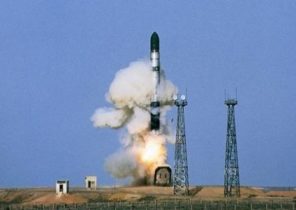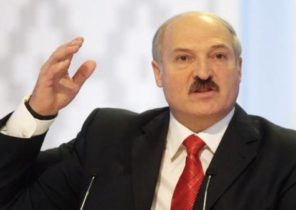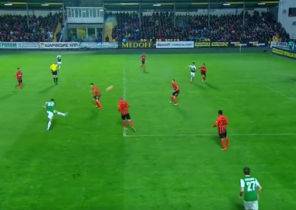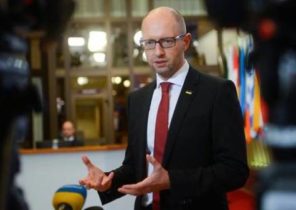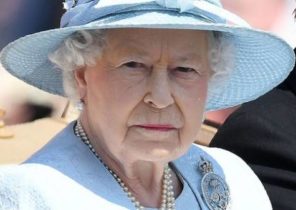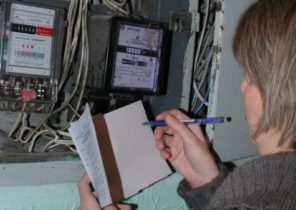
Externally, Russia is strengthening its influence in the world and President Vladimir Putin maintains control over the country. But a deeper analysis shows that Russian capitalism more and more problems.
On the international scene, everything seems to be working in favor of Russia. Putin supporting trump and the fact that the latter was appointed Secretary Rex Tillerson (Rex Tillerson), who is known for his talents in the field of contracts with the Putin government, and support for right populist movements in the EU are giving Putin some hope that he will be able to resist the predatory policies of Clinton and Merkel.
Besides, the horrifying battle of West Aleppo, which, it seems, has won the Assad regime is openly supported by Russia, was a severe blow to Western interests in the middle East.
But even if not to take into account the losses due to international sanctions that were adopted against Russia after the annexation of Crimea and the conflict in Eastern Ukraine, there is every indication that this latest military intervention handled as the Russian economy and its military industry.
How the Russian flagship Admiral Kuznetsov the only aircraft carrier, crept across the English channel towards Syria, it looked pretty bad. It seems that the aircraft, which he was carrying to bombard East Aleppo, could not carry a full set of weapons and fuel, as the ship has no catapults. So, after leaving the ship, they were forced to fly to the airfield with bombs.
Insider source said that “a heavy burden is now aggravates the Russian fleet and the budget […] and there are problems with the condition of the Russian spirit here”.
Since that moment three years ago when the outbreak of the Euromaidan, and NATO became even more to encroach on the Baltic States and Eastern Europe, the ruling elite began to use patriotism to strengthen. Putin is positioning himself as the strongest man who can confront the West. Anti-Western sentiment has never been so strong, even human rights groups and social organizations are now labelled as foreign agents.
Still, there are signs that this policy has reached its limit. Among the Russian population is growing skepticism about the actions of the country in Syria. Even more dangerous is the situation with the situation in Ukraine. After the last failure of the peace talks in Minsk in November, the military conflict again went on the rise. According to OSCE observers in the East (Organization of security and cooperation in Europe) for the first week of November I had more than eight thousand breaches of the ceasefire, and in some cases used heavy artillery and rockets.
All this helped to divert the attention of the inhabitants of the country from the sad state of the economy. However, the government is increasingly concerned about the economic situation. Recently, the Minister of Finance boasted that they overestimated the potential decline in investment this year, said the forecast was 3.7, and in fact the decline was only 3.4.
Sberbank (the largest Bank in Russia and Eastern Europe) commented on this report a warning that the economy will be in stagnation for at least three years and not be able to grow more than 1-1. 5% per year. “Will take place 50 years before the GDP will be doubled”, it was said, among other things. The economy is now at a level not higher than at the beginning of the global financial crisis.
The growing discontent began to show itself even within the ruling bureaucracy. At the beginning of November for taking bribes was arrested by Alexei Ulyukayev, Minister of economic development. As he called to change the priorities of the government and to shift the focus from control inflation to stimulate the economy is to a large extent can be seen as a blow to the neo-liberals in the government.
According to Credit Suisse, real wages in the country are lower than in 2008 and the standard of living has fallen over the year by 15%, even higher this index only from Ukraine and Argentina. Recent reports also predict that in the coming months will be dismissed more than 50 thousand people.
But despite this background, the country has the lowest level of political activity since the fall of the Soviet Union. It depends in part on the fact that people are afraid of retaliation. Large-scale arrests and the courts after the protests in may 2012 that were suppressed by riot police, still fresh in the memory of the activists. Now at the slightest sign of discontent, followed by threats and punitive measures from employers and the state.
The government is preparing to growing discontent, bringing together the police and the security service into a single Department under the control of the President.
But what protests there, at least for now, does not mean that all support the regime. Parliamentary elections in September showed that support for the ruling Putin’s party “United Russia” has decreased by four million votes, and turnout was a record low. In Moscow, United Russia received only 14% of the votes of the electorate. All other official party is still less popular and not opposed to the government.
Non-parliamentary parties, both the left and right, remain demoralized and are in a crisis, since failing growth and protests in 2012.
The dominant feeling “it’s very bad, but there is no way” is reflected in the results of a public opinion poll conducted by the Levada center (which recently was accused that he was under foreign control). They showed that 83% of the population would not participate in any protests, many of whom said that such protests still achieve nothing.
It is impossible to predict how long this situation will continue, but in the end it will end.
When the Russian working people and youth sufficiently to restore the faith in yourself to protect your rights, we’ll see explosive wave of protests against low wages, poor working conditions, corruption and fraudulent elections, and discrimination against women, immigrants and the LGBT community.
Then we will see how to quickly increase the support of leftist ideas — as soon will be offered a clear socialist alternative to the corrupt capitalist system that emerged after the fall of the Soviet Union.
